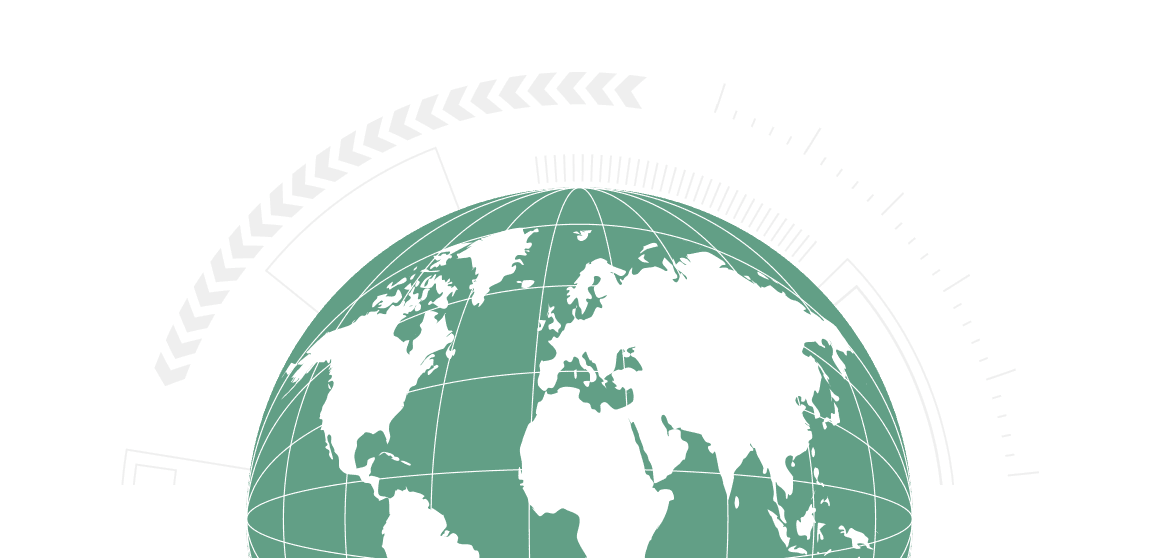WHAT YOU EXPERIENCED
Best practises and legal framework
Collecting and analysing data
Societal impact and engaging audience
The workshop fostered collaboration and networking opportunities among researchers, practitioners, and stakeholders involved in nature conservation and citizen science. Its aim was to address the challenges and limitations associated with citizen science methodologies. By discussing the practical aspects, ethical considerations, data quality concerns, and other issues related to citizen science research, participants have been collectively working towards improving the methodology and creating logical framework for doing citizen science in the Philippines systematically.
SYMPOSIUM PRESENTATIONS TO VIEW
- Matty Shourfer (Marine Conservation Philippines) – Supporting food security in Negros Oriental through citizen science
- Cullen Hanks (Cornell Lab of Ornithology) – eBird and Merlin Bird ID
- Mendel Wong (CitizenScience.Asia) – Citizen Science in Asia: Opportunities and Challenges
- Alison Young (California Academy of Sciences) – Lessons learned from 10+ years of using iNaturalist for biodiversity-focused community science
- Joanna Philipoff (University of Hawaii) – Citizen science in Hawai‘i’s Intertidal: Engaging teachers and their students in a long-term monitoring project
WORKSHOP PROGRAMME
Best practises and methodology of citizen science
Societal impact and practical workshops
Joanna Philipoff (University of Hawaii) – Citizen science in Hawai‘i’s Intertidal: Engaging teachers and their students in a long-term monitoring project (online)
Excursion
Guided tour to Bayawan Nature Reserve
INVITED SPEAKERS AND WORKSHOPS LEADERS
Listed alphabetically
Feye Andal
De La Salle University, YouthMappers
In-person
Feye Andal has been an active volunteer with OpenStreetMap-Philippines since 2013. Through her extensive involvement with OSM, she has honed her expertise in teaching diverse stakeholders how to effectively use OpenStreetMap and other open mapping tools, which is vital in advancing geographic information accessibility. Recognized for her leadership and expertise, Feye established a local YouthMappers chapter in the Philippines and has been a Regional Ambassador of YouthMappers since 2020. She provides technical support to the chapters in this capacity, fostering collaboration and knowledge exchange among aspiring mappers.
Peter Brenton
Living Atlas of Australia
Online
Overview of BioCollect, a universal field data collection platform
Peter Brenton is the manager of the Applications Team at the Atlas of Living Australia (ALA), the Australian national biodiversity data aggregation facility. Peter has worked as a senior member of the ALA team since it commenced in 2009 and he has been integral to developing the ALA’s infrastructure support program for citizen science in Australia. Peter’s background includes over 20 years of operational experience working in applied environmental science and more than 23 year experience in the IT sector designing and developing many successful IT software applications and projects.
Peter developed the BioCollect cloud-based platform in 2015 to enable anyone collecting biodiversity and environmental data in Australia to collect “born digital”, standards-based field data, and for that data to flow easily through to data aggregators such as the ALA, whilst still enabling communities and individuals a means to collect and manage data for their own purposes. Users of BioCollect include: national, state and local governments; university and institutional researchers; natural resource management groups, industry-based ecologists; and a very wide array of citizen science communities.
Titus Cañete
LAMAVE, Deep Sea Shark Research and Conservation Project, Whale Shark Research and Conservation Project.
Online
Harnessing Citizens‘ Power to monitor marine megafauna in the Philippines.
Initially taking up Biology in pursuit of a future career in medicine, Titus fell in love with marine conservation and has since shifted his focus to protecting the beauty of the ocean. After graduating university, Titus pushed towards his career in marine conservation and has led assessments in coral, seagrass and mangrove conservation working closely with communities, local governments and national agencies for a collaborative approach towards sustainability. Titus joined LAMAVE in 2019 to lead the Donsol and Palawan Whale Shark Research and Conservation Project. Currently focused on the study of deep sea megafauna in the Philippines, Titus aims to discover, study and protect the unexplored depths of the sea.
Cullen Hanks
Macaulay Library, Cornell Lab of Ornithology
Online
eBird and Merlin Bird ID
Cullen is a project leader who helps coordinate media collection, the eBird project, and Merlin Bird ID. As a teenager Cullen connected with the birding community, which supported his interest in nature and led to a career focused on birds and conservation. His primary role is to support our network of partners that use eBird and Merlin tools to engage communities in birds and collect useful data for research and conservation efforts. Cullen works with partners to translate applications, conduct workshops, and develop additional resources and strategies for community engagement and data management.
Clark Jerome Jasmin (JC)
Center for Conservation Innovation Ph Inc.
In-person
Using EarthRanger to maximize citizen science contribution for post-disaster response in Palawan
Clark Jerome S. Jasmin leads CCIPH’s Technology Solutions Team, which deploys conservation technologies and demonstrates their use and applicability to level up biodiversity monitoring projects. His work focuses on geospatial technologies, ecological modeling, and citizen science to provide solutions in different aspects of environmental work. In particular, he is adept in using various GIS-based applications to identify High Conservation Value Areas (HCVAs) for the conceptualization of species and landscape level interventions.
Justine Magbanua
Talarak Foundation, Inc.
In-person
Environmental issues in West Visayas and Talarak’s goals to combat this
Joanna Philippoff
University of Hawaii at Manoa
Online
Citizen science in Hawai‘i’s Intertidal: Engaging teachers and their students in a long-term monitoring project
Joanna Philippoff is a faculty member in the Curriculum Research & Development Group in the College of Education at the University of Hawai‘i at Mānoa. She designs, implements, teaches, evaluates, and does research on and about science education. Her research interests include studying how engaging scientific novices in authentic marine scientific research enhances their scientific literacy and furthers their understanding of the scientific process and the way scientific knowledge is generated. She heads up the citizen science monitoring program OPIHI—Our Project In Hawai‘i’s Intertidal. She holds a BA in biology, a MS in zoology, and a PhD in educational psychology.
Giovanni A. Tapang
College of Science, University of the Philippines, Diliman, Quezon City
In-person
Julia Tichit
In-person
Innovate conservation with Indigenous People within the range of a critically endangered species (Tamaraw)
I am an independent researcher and consultant, in the Philippines, specialized on community development, environmental challenges and sustainable livelihoods. Since 2021, I’m leading the Research Strategy and the Indigenous People Participation for the Community – Tamaraw driven Landscape Program (D’Abboville Fondation, Occidental Mindoro). Last 2023, I’ve started my involvement to design Sustainable Livelihoods for the rural communities living around the Bayawan Nature Reserve (Talarak Fondation, Negros Oriental). Previously, I have been a lecturer at the University and a social worker on the field, devoted to urban poverty issues in marginalized communities.
Jakub Trojan
Czech Academy of Sciences
In-person
Citizen Science platforms – European perspective (case of EU-Citizen.Science)
Researcher at Czech Academy of Sciences focused on new technologies and citizen science. Active in European Citizen Science Association (working group on CS networks and other WGs). Open source advocate. Assisstant professor at Tomas Bata University in Zlin and Masaryk University in Brno. Teaches geographical subjects (especially human geography, regional policy and regional development).
Emilia A. Lastica-Ternura
Department of Veterinary Clinical Sciences, University of the Philippines Los Baños
In-person
Issues around disease spread and biodiversity protection
Alessandro Ponzo
LAMAVE – Large Marine Vertebrates Research Institute Philippines
Online
Harnessing Citizens‘ Power to monitor marine megafauna in the Philippines.
Dr. Alessandro Ponzo is a veterinarian specialized in marine wildlife conservation. He is the co-founder of the Large Marine Vertebrates Research Institute Philippines, an NGO dedicated to the conservation of marine megafauna in Southeast Asia. His work with LAMAVE focuses on designing and supervising research projects aimed to solve urgent conservation issues, spanning from marine turtle poaching and unsustainable fisheries to unregulated tourism practices and illegal wildlife trade.Ale is a National Geographic Explorer and a Kinship Fellow. He is also the co-founder of the global Sea Turtle Rescue Alliance, and the Asia-Pacific Marine Turtle Genetic Working Group, both initiatives aimed at supporting the recovery of endangered populations of marine turtles in Asia.
Marine megafauna includes many threatened long living migratory species. Monitoring their populations across the over 7000 islands of the Philippines’ archipelagos and their movements in Southeast Asia, which is fundamental for the sustainable management of human activities, is a monumental task. Due to the charismatic nature of many of these species, their economic value through tourism and the ubiquitous use of social media in the country, data from citizens can be harnessed to contribute and supplement dedicated research effort. Here we will discuss the use and power of different forms of citizen science engagement and harvesting data from social media platforms to understand, presence, movement, threats and population trends of marine megafauna like whale sharks, manta rays and marine turtles, with reference and limitation to other marine taxonomic groups.
Yikweon Yang
Department of Life Sciences and Division of EcoScience, Ewha Womans University, Seoul
In-person
Conservation of the Suweon Treefrog through Citizen Science in Korea
Yikweon Jang is professor in the Department of Life Sciences and in the Division of EcoScience at Ewha Womans’ University. Dr. Jang’s research interests focus on the ecology and evolution of communication, Ecoacoustics, and conservation. One of the main projects is population control of invasive amphibians and reptilians, using diverse methodologies including physical removal and ecological modeling. In addition, Dr. Jang is running citizen science programs to collect large-scale ecological data as well as to increase public awareness in conserving endangered species.
Alison Young
Center for Biodiversity and Community Science at the California Academy of Sciences
Online
Lessons learned from 10+ years of using iNaturalist for biodiversity-focused community science
Alison works at the California Academy of Sciences as the co-director of the Center for Biodiversity and Community Science and the co-director of the Academy’s Thriving California strategic initiative. In her community science work, she builds community and partnerships around nature, creates events and campaigns focused on documenting biodiversity, and brings this community-collected data to answer scientific questions and help inform decision-making. Alison co-leads the annual City Nature Challenge, one of the largest community science events in the world, collaborating with people around the globe to share biodiversity observations in and around urban areas. She also helps to run Snapshot Cal Coast, a yearly campaign to document species along the California coastline and then mobilize the data for coastal management. Alison’s background is in marine biology, and when she’s not in the tidepools for work, she can often be found in the tidepools for fun — usually photographing nudibranchs, or in her pottery studio, happily bent over a pottery wheel, covered in clay.
Mendel Wong
CitizenScience.Asia
In-person
Citizen Science in Asia: Opportunities and Challenges
Mendel established CitizenScience.Asia in response to the lack of a unified voice for Asia in matters relating to citizen science with the goal to bring together the regional citizen science communities and help share their stories. He is also the representative for CitizenScience.Asia on the Board of the Citizen Science Global Partnership. Outside of citizen science, Mendel is a technology executive in the finance industry fueling his passion to facilitate solutions that leave strong positive experience and impact.
WHY ATTEND THE WORKSHOP?
Citizen Science in Conservation Research powered by Global Biodiversity Conservation Conference series will traditionally connect exact science with non-profit activism, the business sector, and government agencies.
Follow Us On Social Media
Wanna know more? Stay tuned!










































